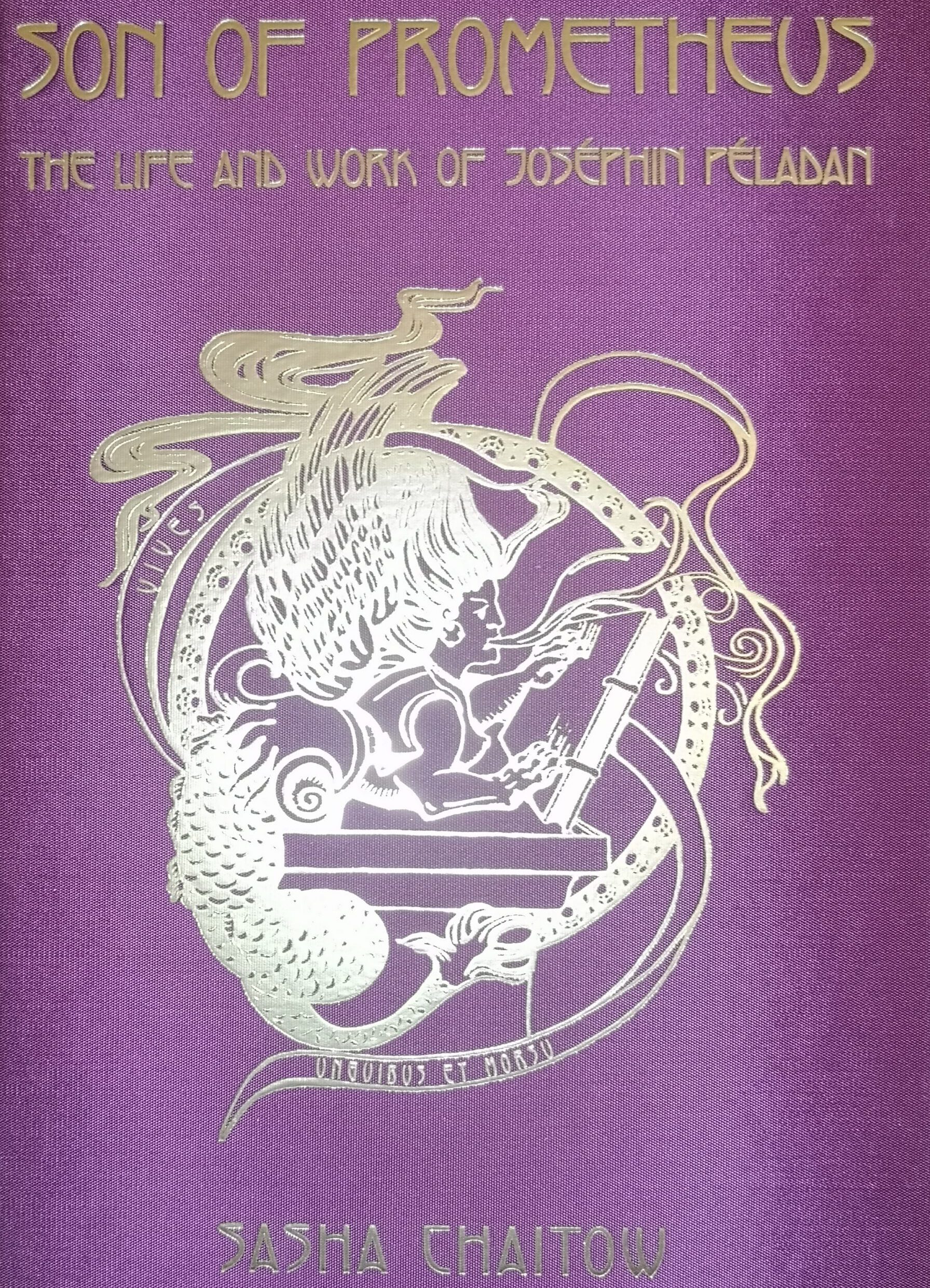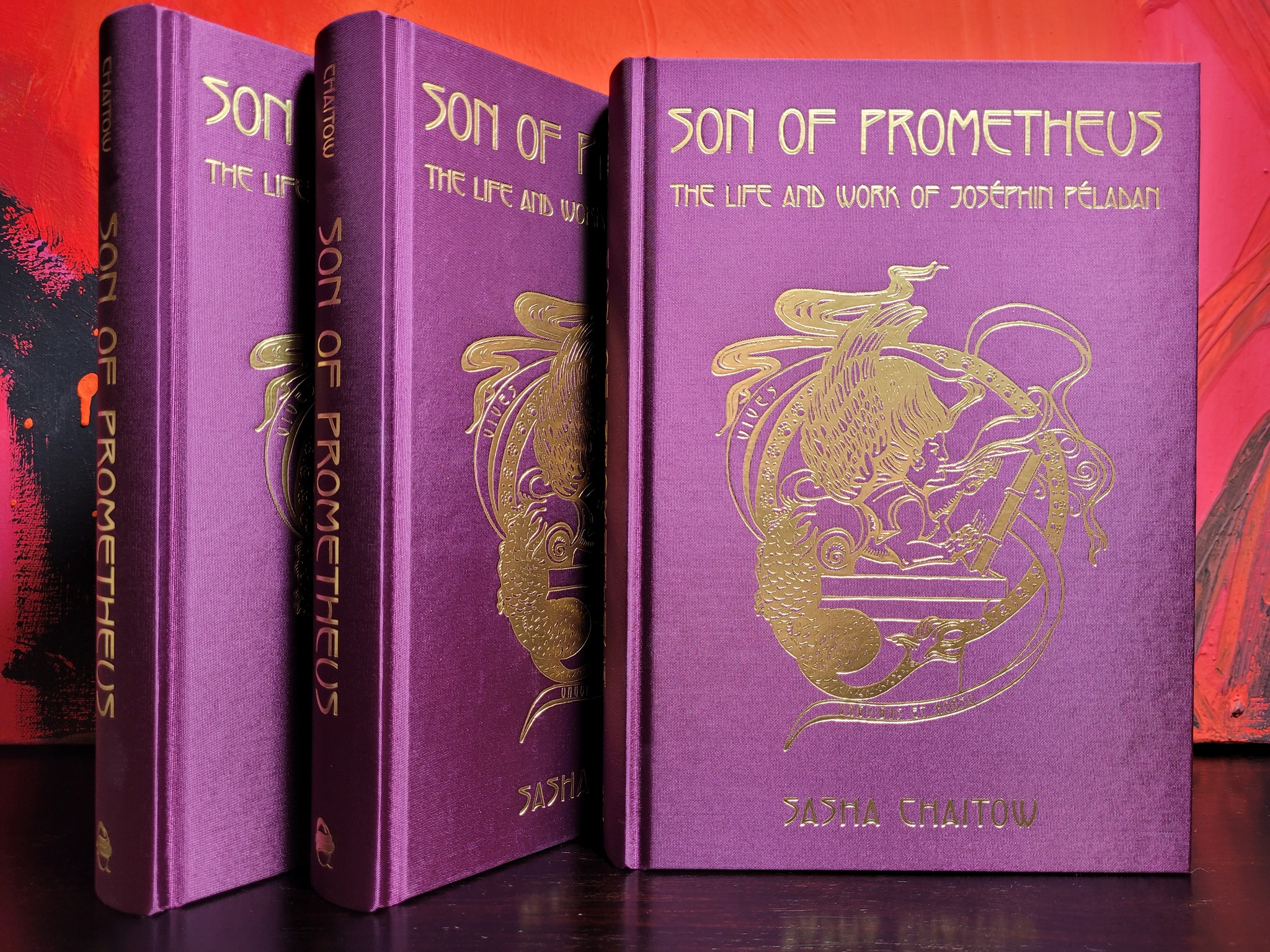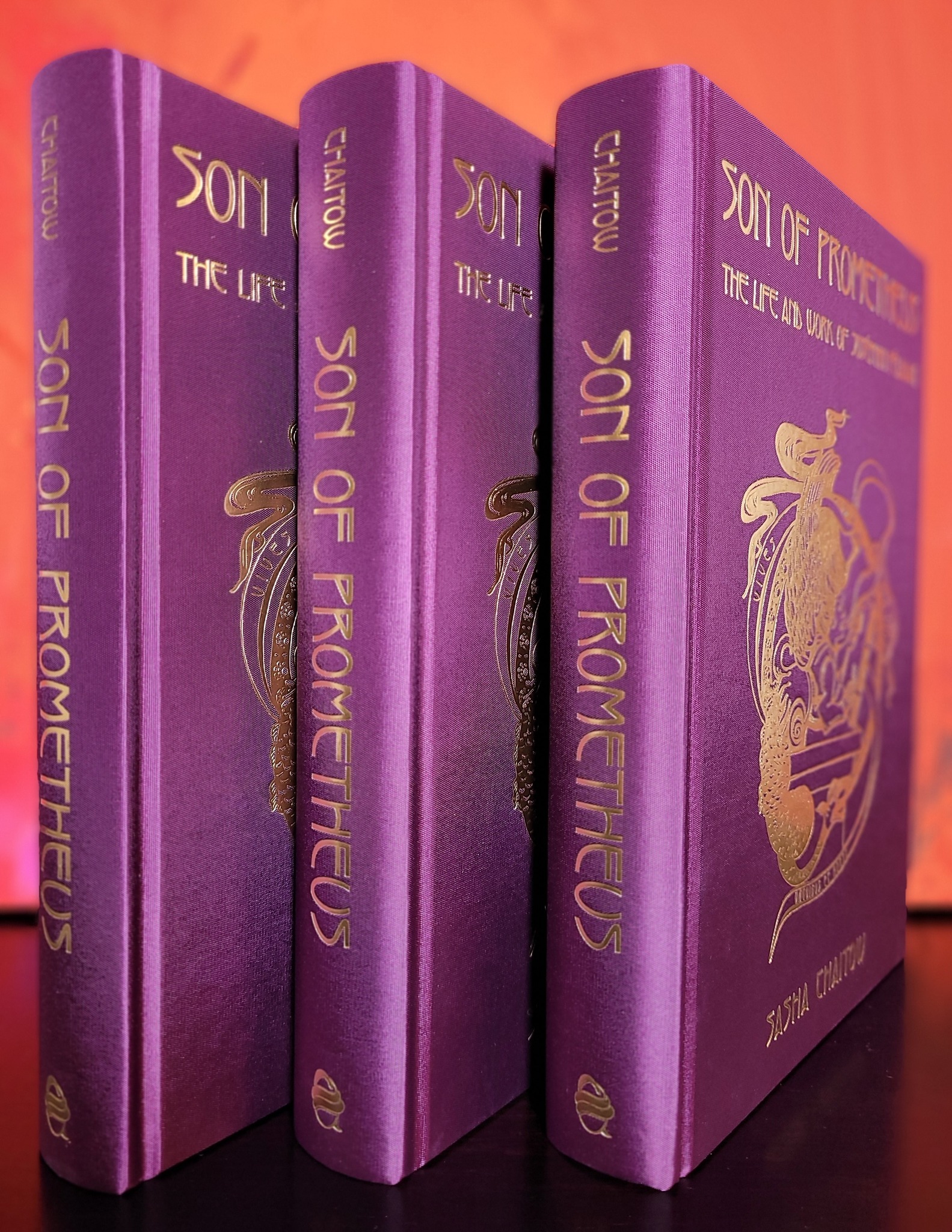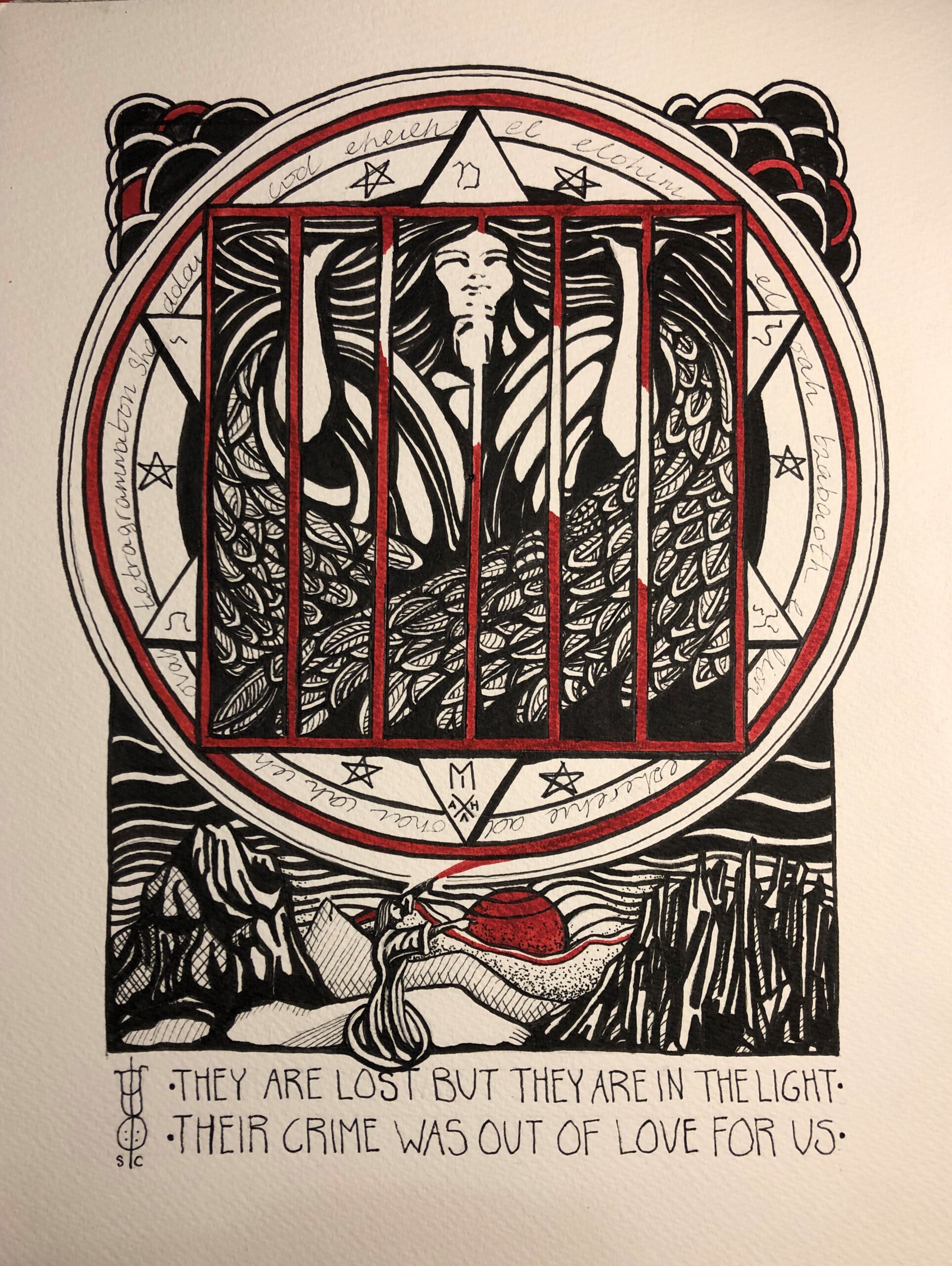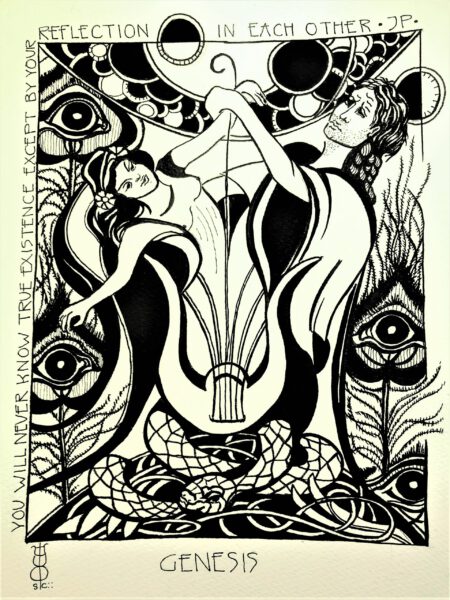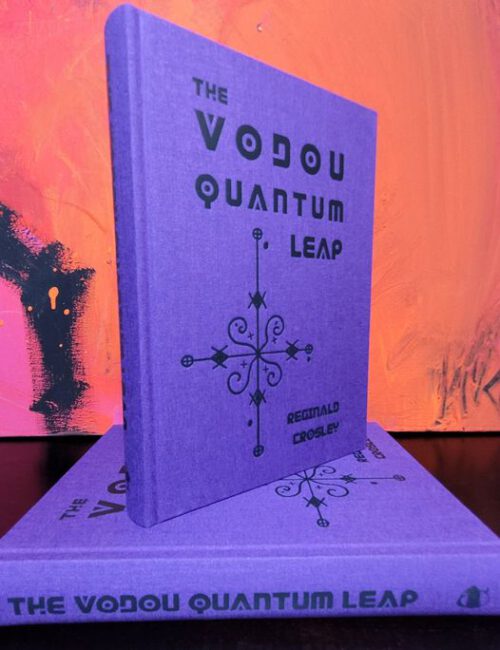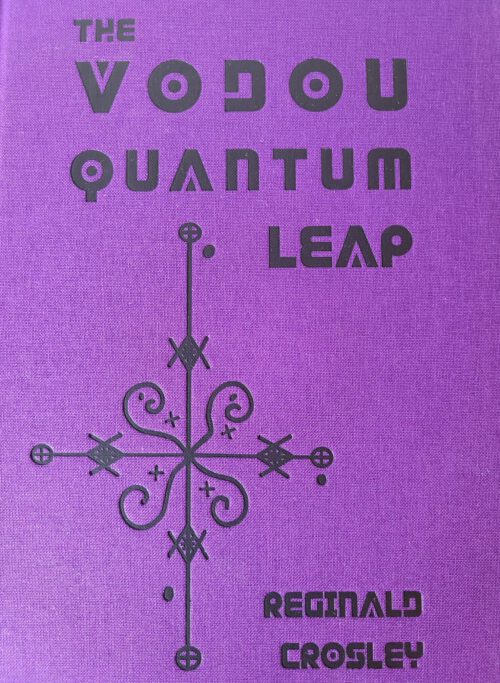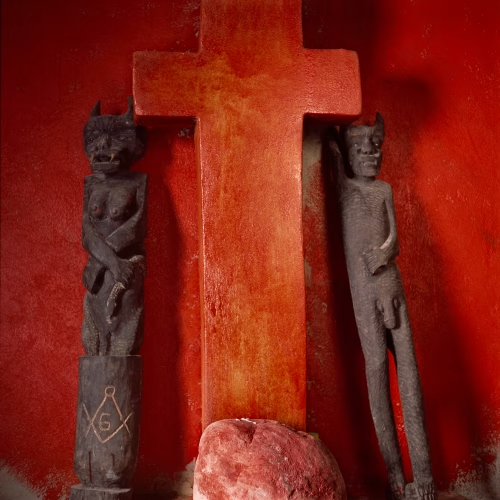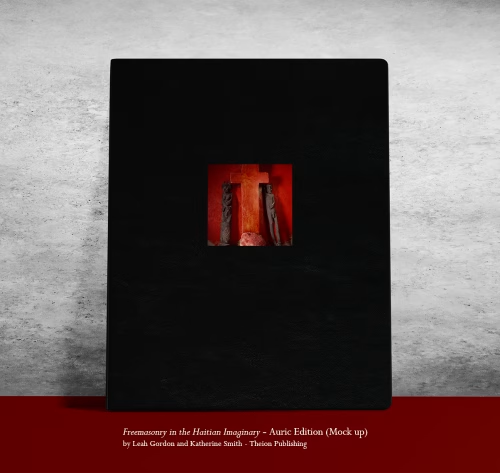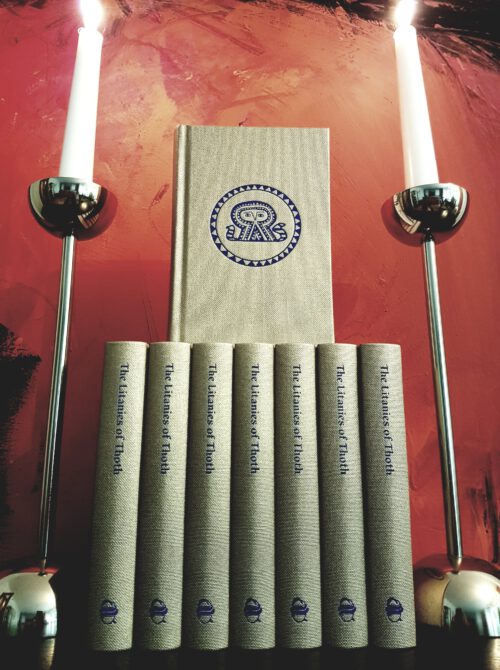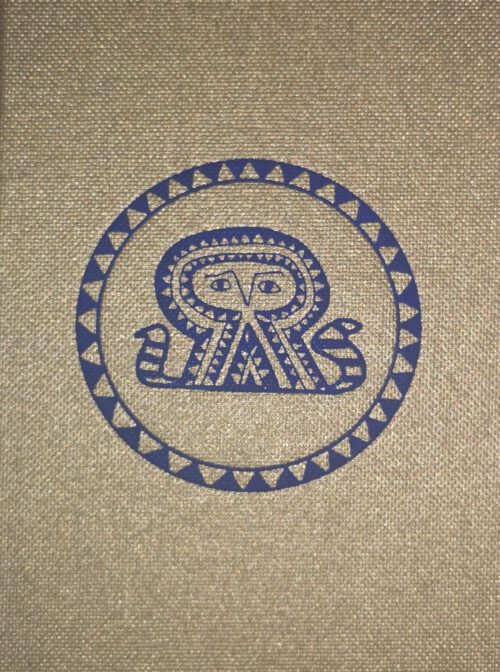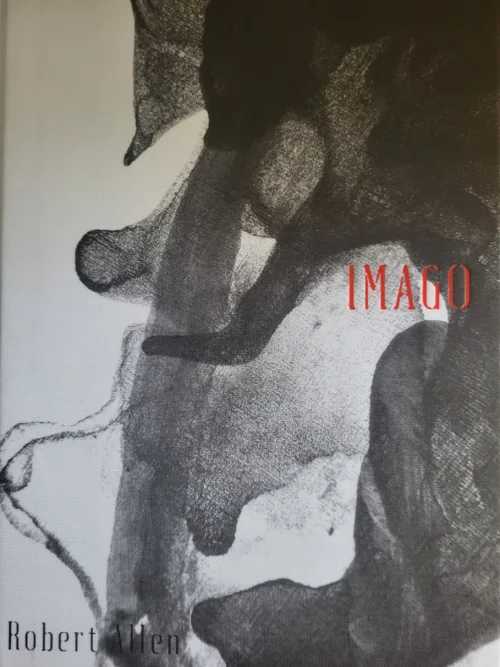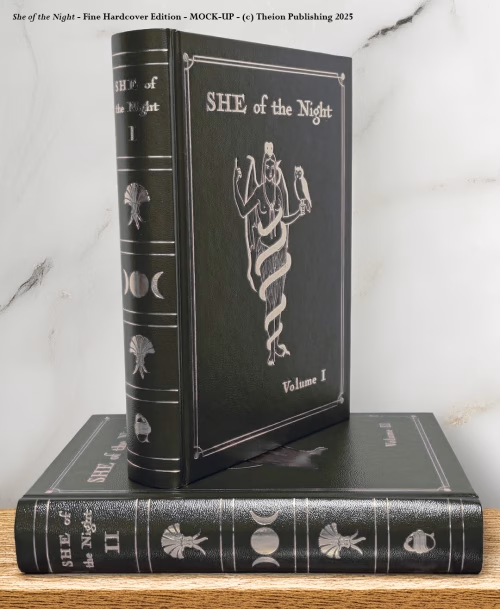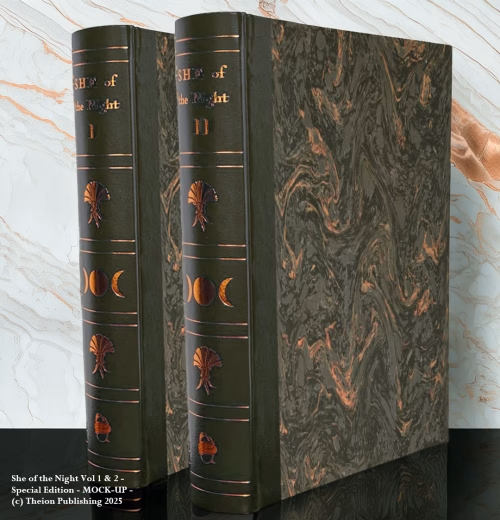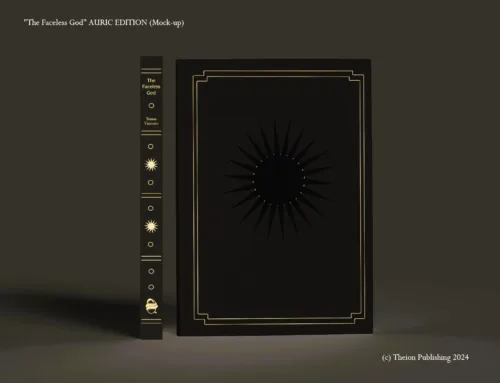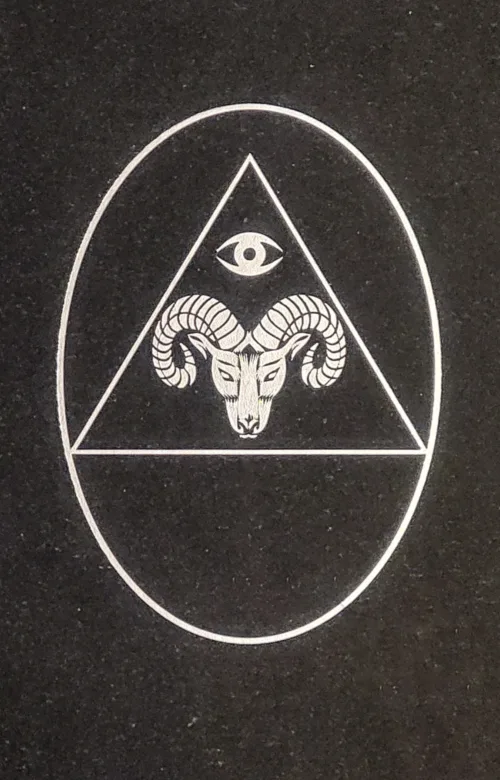Sasha Chaitow’s Son of Prometheus is the first scholarly study of the life and work of Joséphin Péladan that succeeds in placing it in the context of the history of Western Esotericism while also providing a clear roadmap to the entirety of Péladan’s initiatory teachings and philosophy of the esoteric power of art. Responding to multiple cultural shifts in fin-de-siècle French society, Péladan authored over a hundred novels and monographs in an attempt to bring about the spiritual regeneration of society through mythopoetic art underpinned by esoteric thought.
Best remembered for organising the short-lived, though influential Salons de la Rose et Croix in the 1890s, that provided a focal point for Symbolist art and sought to unite the arts into a revival of initiatory drama, Péladan’s enormous oeuvre of over a hundred books and several thousand articles, slipped into oblivion and has been overlooked ever since. Previous accounts highlight his eccentricity, or isolated elements of his work, but until now, none have explored the breadth of his work in its cultural context. Sasha Chaitow undertook to do this over the course of the last 12 years, and has produced a study that offers a solid biographical introduction which corrects long-standing misperceptions, followed by accessible but robust thematic presentations of the many facets of Péladan’s work, including many unpublished translated excerpts of his work. He called himself a novelist, a playwright, a philosopher, an art critic, a savant and a zelator; he was all these and more, predicting in an unpublished autobiography that one day he would be the object of detailed study. After a century of oblivion, that day has come. His work is of undoubted interest to scholars, artists, and esoteric practitioners alike. Chaitow’s approach is both interdisciplinary and reader-friendly, ensuring that Péladan’s vision for changing society through art and authentic living is accessible to all.
Illustrated by Chaitow herself, who undertook several artistic explorations of Péladan’s work alongside her research, the book features forewords by Professors Per Faxneld and Christopher McIntosh, and is endorsed by Professor Christopher Partridge.
About the author: Dr. Sasha Chaitow is a prolific lecturer, writer, and artist. One of the central foci of her research is the life and work of Josephin Péladan, one of the most important and colorful personalities of the French Occult revival. His importance for many modern esoteric movements incl. Rosicrucianism and Gnosticism cannot be underestimated – which makes the lack of available translations of Péladan’s work even more shocking. Sasha studied art, communication and English literature in Athens and after completing her Master in Western Esotericism at the University of Exeter she did her PhD on Joséphin Péladan. As a pre-eminent authority on Péladan, Sasha has been instrumental in bringing him to the greater attention of a contemporary esoteric audience.
Bibliographic Details:
- 432 pages, 165 x 235 mm,
- printed on 115gsm wood-free, quality design paper in ivory,
- 125gsm gold endpapers, headbands and ribbon,
- incl. 9 greyscale images of original pen and ink freehand illustrations by the author.
Cloth Hardcover Edition (In stock)
- Bound in lustrous deep-purple fine cloth,
- gold embossing of an original design by the author, lettering on spine,
- limited to 710 copies only.
Auric Edition (SOLD OUT)
- fully hand-bound in fine scarlet red leather, manufactured in Germany,
- gold cover embossing of an original design by the author, lettering on spine,
- custom red velvety solander box with gold embossing on cover
- Inside the box’s cover as book mirror is a tipped-in print on smooth watercolour paper in A5 of “Lost in the Light”, an original pen and ink, b/w + red, freehand illustration by Sasha Chaitow, signed and dated, exclusively drawn for Theion Publishing,
- limited to 46 hand-numbered copies only.
The Cloth Hardcover Edition is in stock and shipping.
Previous studies of Péladan have failed to deliver a complete picture of the man and his achievements. Most art historians have little understanding of the esoteric and are even apt to be hostile towards esoteric interpretations of an artist. Scholars of esotericism, on the other hand, are often ignorant of art history. Sasha Chaitow is uniquely qualified to write this study, having a knowledge of art history as well as the esoteric context of Péladan’s work. She also has the insight that comes from being an artist herself. One of the great merits of the book is her very clear and detailed exposition of Péladan`s initiation system.
Not long ago the subject of Péladan would have been regarded as belonging to a minor side road in the history of art, esotericism or the Belle Epoque. Now, in an age when the arts are largely cut off from tradition and bereft of beauty or spiritual meaning, his message is perhaps more relevant than ever. In Sasha Chaitow he has at last found a biographer able to do him justice.
Dr Christopher McIntosh,
formerly Professor of History of Western Esotericism
at Exeter University (EXESESO)
Joséphin Péladan is one of those creative, original, and influential thinkers that deserves far more attention than he has so far received. Sasha Chaitow’s groundbreaking book, which is rooted in careful scholarship and insightful analysis, fills this lacuna in studies of Western esotericism. Whether you are interested in occult trajectories within modernism, fin-de-siècle esotericism, or Orientalist discourses during the French occult revival, you will profit from reading this lucid and engaging study of a truly fascinating thinker.
Christopher Partridge,
Professor of Religious Studies
Lancaster University

